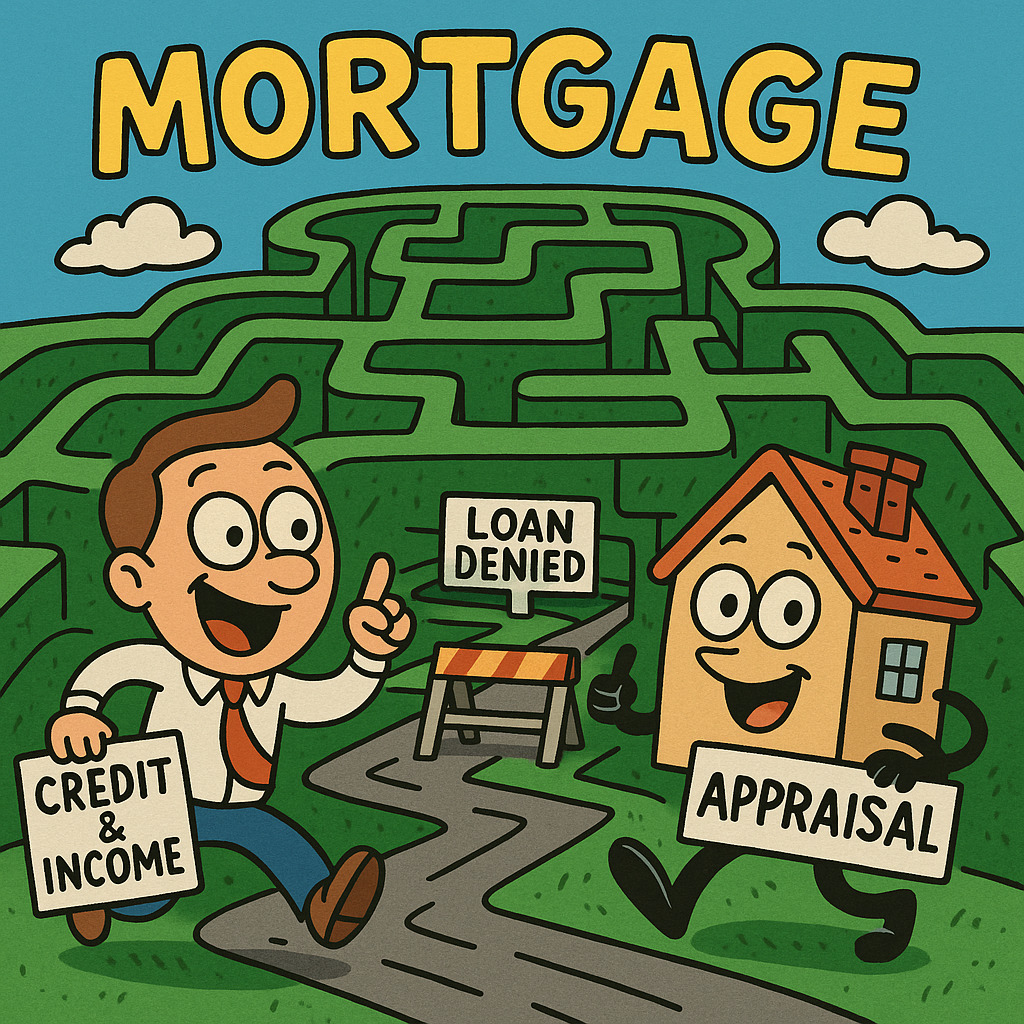
For you to successfully purchase a home or refinance a home, you’ll want to pay attention to your overall financial picture. Each mortgage lender requires a blend of healthy credit, manageable debt, and income as a basis for support for the whole picture. The following are some of the things to consider when it comes to getting mortgage financing and you’re concerned about your credit…
When you apply for a mortgage, the lender must pull a copy of their own credit report. Credit reports are not transferable from one creditor to another. Moreover. The credit reporting service you are using for free or your credit card company is not the best barometer of what your credit score is. That would be annualcreditreport.com where you can get a complimentary copy of your credit report each year.
One of the things many possible mortgage applicants are concerned about is the thought process that pulling credit for a mortgage automatically tanks their credit score drop, which is not specifically accurate. The federal government wants consumers to shop for mortgages and as a by-product, you are not penalized when it comes to pulling credit for a mortgage if that timeframe is within 30 days. Even if your credit score drops a little bit depending on where your credit score falls that does not preclude you from getting mortgage financing contrary to what you might read or see on the internet.
Generally speaking… If your credit score is over 700. You really need not worry about your credit score dropping as a byproduct of trying to secure mortgage financing. A 700 credit score versus a 740 credit score really doesn’t change the cost picture on most loans.
Here’s what typically happens consumers get fixated on what they think their credit score is based on their credit card company or on their free credit reporting company tells them failing to realize that those are only one bureau. Lenders look at all three bureaus Equifax TransUnion and Experian, not just one. So right out of the gate. It’s not apples and apples. Secondarily, what a lot of consumers don’t typically realize is maintain high utilization credit can change this. High credit card balances can very easily change one’s credit score. If you perceived your credit score to the X and ends up being y it’s probably because of high utilization of credit is presently occurring.
In most situations, it is almost always never an apples-to-apples comparison between what their credit score you think you have is and what the mortgage companies is. The best rule of thumb is if you’re looking to purchase a house, you must surrender and let the lender pull a copy of your credit report then look at your income, your debts and your overall structure of your loan. Don’t get so wrapped around the axle about them pulling a copy of your credit report for fear that your credit score is automatically going to go down when there is a ton of other factors that come into play such as the age of credit, payment history station of credit, what types of credit, Etc. A wonderful resource that provides free credit information is myfico.com where you can download a complimentary copy of the most accurate credit score booklet available that provides tangible information if you’re really concerned about your credit.
If you are looking for a mortgage? Start with a no-cost quote today!


